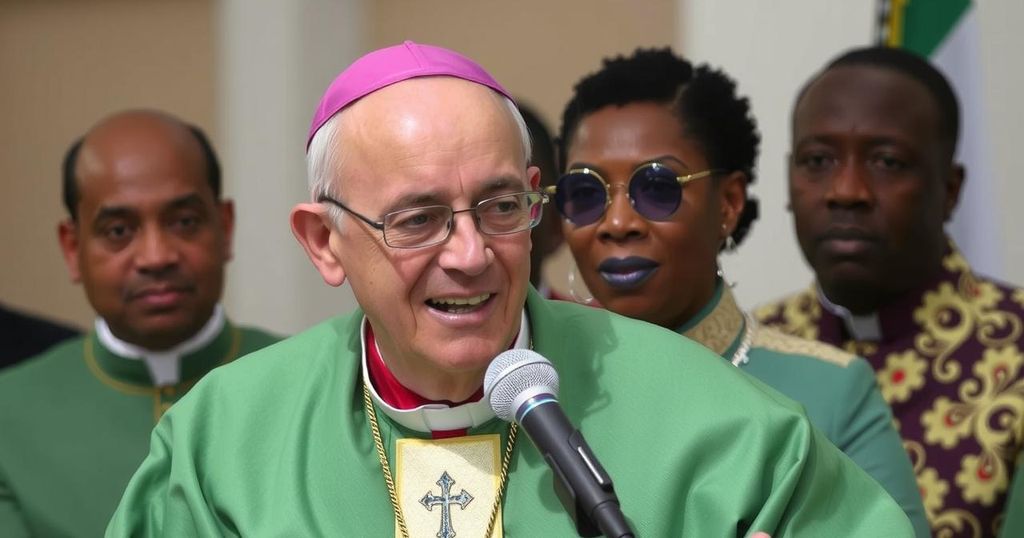Politics
AFRICA, BEMBA, CONGO (KINSHASA), CORRUPTION, DEMOCRACY, DEMOCRATIC REPUBLIC OF CONGO, DISCRIMINATION, DONATIEN NSHOLE, DR CONGO, EPISCOPAL CONFERENCE, FÉLIX - ANTOINE TSHISEKEDI, FELIX - ANTOINE TSHISEKEDI, HUMAN RIGHTS, KINSHASA, MOUVEMENT DE LIBERATION DE CONGO, PIERRE BEMBA, SECRETARIAT, SEE
Jamal Walker
0 Comments
DR Congo Bishops’ Conference Responds to Deputy Prime Minister’s Allegations
The Episcopal Conference of the Democratic Republic of Congo has responded to Deputy Prime Minister Jean-Pierre Bemba’s accusations of inciting hatred against the government. Bishop Donatien Nshole called for evidence against the Church, which he stated is engaged in beneficial social initiatives with the government. The controversy coincides with constitutional debates affecting President Tshisekedi’s potential third term, highlighting tensions between political and religious leaders.
The Bishops’ Conference of the Democratic Republic of Congo has issued a statement expressing regret over comments made by Deputy Prime Minister Jean-Pierre Bemba during a December 4 radio interview, in which he criticized the Catholic Church for allegedly inciting hatred against the current government. Bishop Donatien Nshole, Secretary General of the Conference, refuted these claims, demanding evidence for the accusations and highlighting the Church’s cooperative efforts with the government on social initiatives. Bemba’s remarks come amidst ongoing controversies regarding proposed constitutional changes that could allow President Félix-Antoine Tshisekedi to extend his tenure. The Movement for the Liberation of Congo, Bemba’s political party, has publicly supported the constitutional revision, while local church leaders have opposed it, indicating a growing tension between the political sphere and the Catholic Church.
This controversy unfolds against the backdrop of significant political changes in the Democratic Republic of Congo, including a potential constitutional amendment that may permit President Tshisekedi to seek a third term in office. The Bishop’s Conference has been actively engaged in humanitarian and developmental initiatives under an agreement with the government, which has faced scrutiny amid allegations of misallocation of funds. The Catholic Church’s role in politics and social issues is deeply intertwined, highlighting the complexities of governance and religion in the region.
The situation between the Congolese government and the Catholic Church underscores the tensions present in Congolese politics, particularly regarding freedom of expression and the relationship between church and state. As both sides navigate these controversies, the implications for civil society and governance will be closely watched, particularly in light of upcoming electoral processes and constitutional reforms.
Original Source: www.fides.org




Post Comment